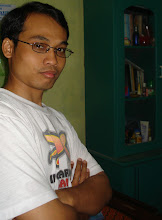DESIGN AND DEVELOPMENT OF TECHNICAL AND VOCATIONAL TEACHER/TRAINER EDUCATION QUALIFICATION FRAMEWORK AND PROFESSIONAL STANDARDS IN THE OIC MEMBER COUNTRIES
Assistant Professor Dr. Che Kum Clement,
Islamic University of Technology (IUT), Board Bazar, Gazipur-1704, Bangladesh
Abstract
Noticeable changes in today’s world of work have resulted in a variety of new and emerging occupations. Technical and vocational education teachers of the 57 member countries of the Organisation of the Islamic Conference (OIC) play a key role in the transaction of technical and vocational curriculum through organising a variety of curricular activities both in and outside the institute. A technical and vocational education teacher has to play diversified roles and responsibilities such as a subject specialist, an experienced practitioner, an effective communicator, a curriculum and instructional material developer, a manager, a counsellor, an evaluator and a motivator for entrepreneurship (Haider 2004, pp. 2). Through a proper designed framework of Teacher Qualification and professional Standards, all these desired skills could be achieved by TVET teachers of OIC countries (Che Kum 2005, pp. 4).
Developing professional standards in TVET teacher trainer Education is targeted to an international implementation aiming to define quality criteria for the education of further education and training. The full professionalisation of the actors in TVET within OIC and the entire scientific community is of crucial importance for the pro-active development and use of the relation between training the workforce and innovation process. The standard is meant to provide a basis for international co-operation as well as mutual exchange of students, teachers and TVET specialists. Furthermore it is meant as a basis for the mutual approval of students credits.
Some authors have suggested that the development of rigorous National Teacher Qualification Standards and their certification may increase the professional standing of the teaching profession; create a consistent, unified vision of accomplished teaching; and install in the general public a positive image of public education (Serafini 2002, pp. 318).

